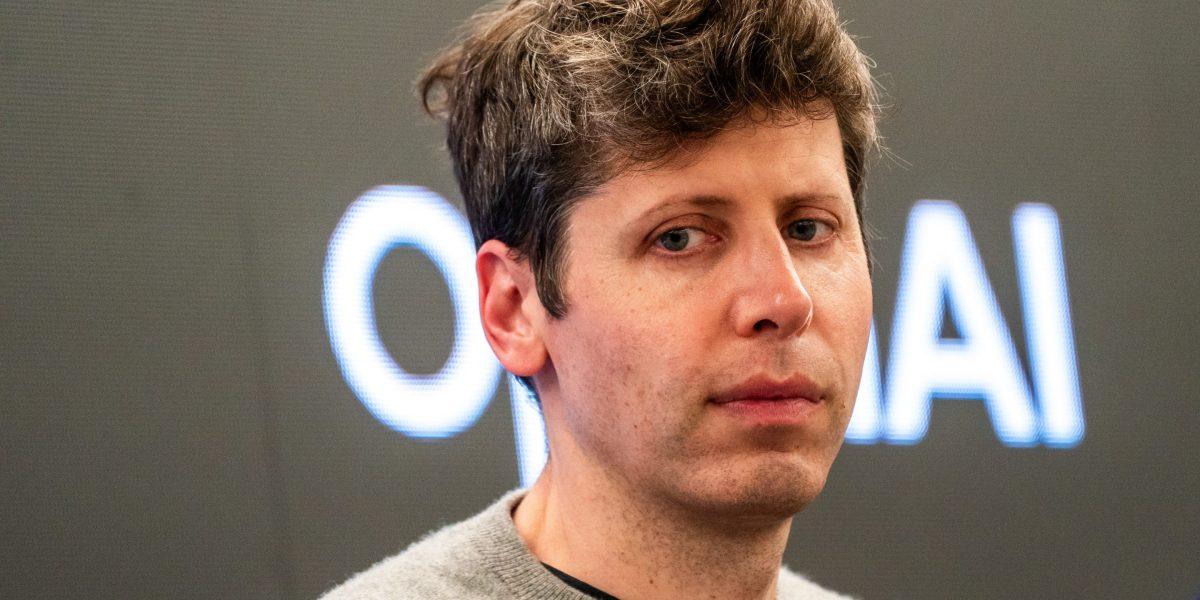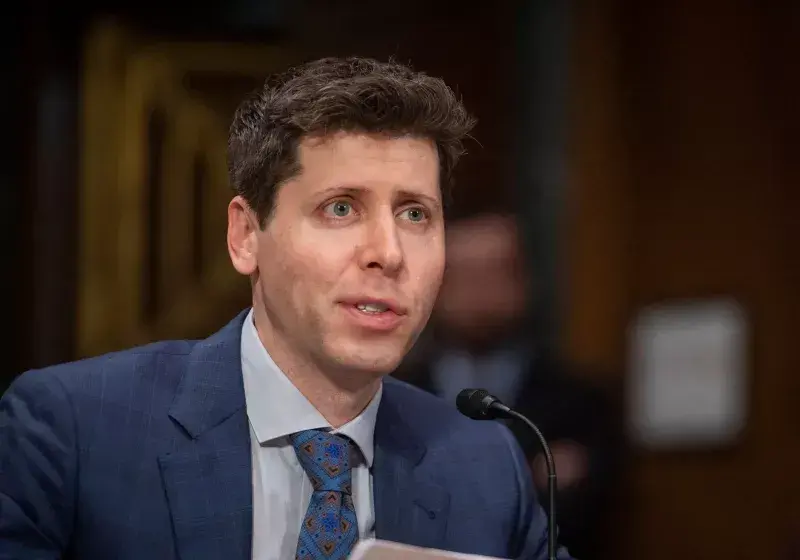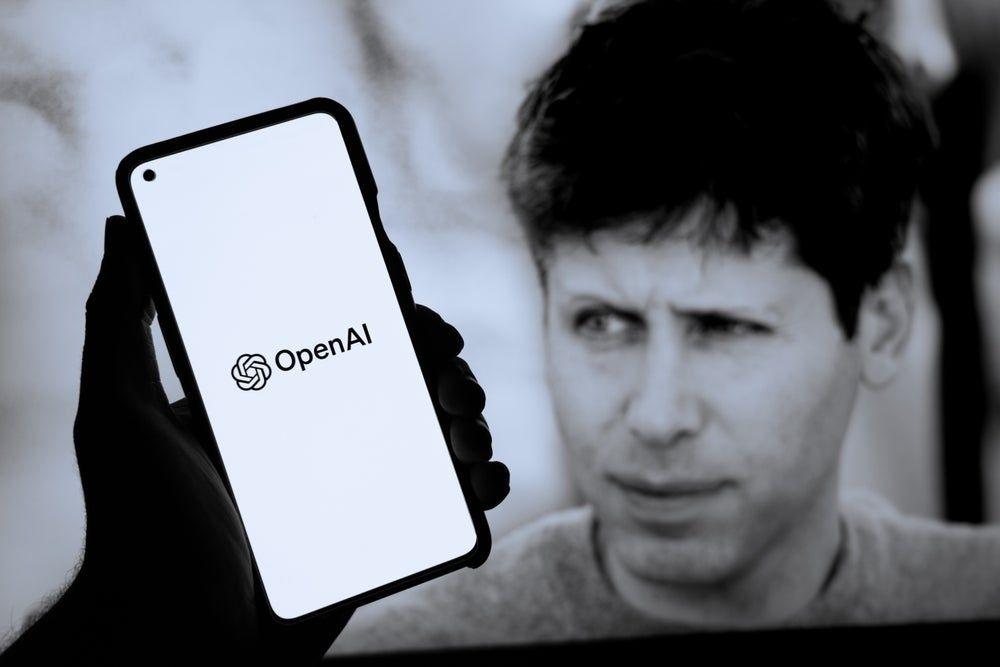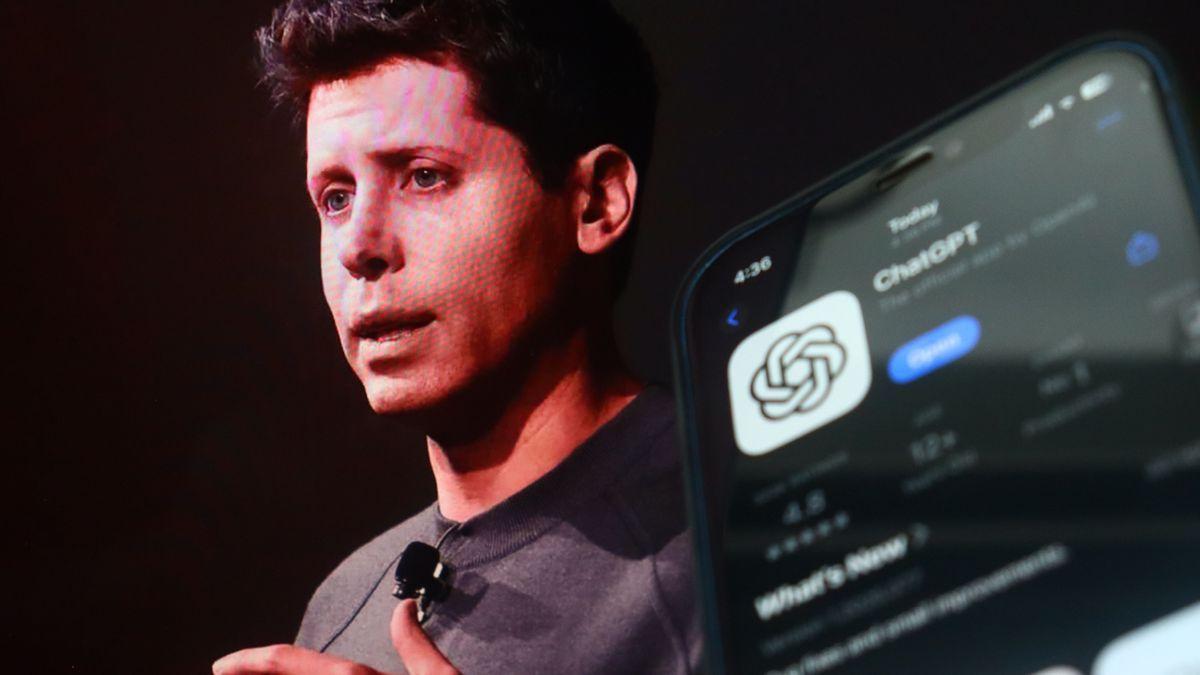Sam Altman Predicts AI Superintelligence by 2030, Forecasts Significant Economic Impact
3 Sources
3 Sources
[1]
Sam Altman predicts Artificial General Intelligence by 2030, says AI will take over 40% of tasks
Serving tech enthusiasts for over 25 years. TechSpot means tech analysis and advice you can trust. Crystal ball: Sam Altman has given another prediction on when artificial general intelligence (AGI) - an AI vastly smarter than humans - will arrive: the OpenAI boss said that "superintelligence" will be here by 2030. He also said that 30-40% of tasks that happen in the economy today will be taken over by AI in the not very distant future. Jan Philipp Burgard, editor-in-chief of the Die Welt newpaper, interviewed Altman on behalf of the Axel Springer Global Reporters Network this week in Berlin. Altman was in Germany's capital to receive this year's Axel Springer Award. The interview covered several areas, including the development of an AI superintelligence. Altman said that the latest GPT-5 model is in many ways smarter than a lot of people, himself included, but an actual superintelligent AI will emerge before the end of the decade. "If we don't have models [by 2030] that are extraordinarily capable and do things that we ourselves cannot do, I'd be very surprised," he said. We've already seen thousands of people laid off as a result of generative AI, either directly or indirectly. Burgard asked Altman what percentage of today's jobs are likely to disappear in the foreseeable future. Altman, not wanting to paint too pessimistic a picture, pointed out that many jobs from 30 years ago do not exist today, even without the influence of AI. The CEO was less willing to put a figure on what percentage of jobs will be taken by AI; instead, he claimed 30-40% of tasks that "happen in the economy" will be done by AI in the not very distant future. When asked about what advice he would give to his son so his job won't be replaced by AI in 30 years, Altman said, "the meta-skill of learning how to learn, of learning to adapt, learning to be resilient to a lot of change. Learning how to figure out what people want, how to make useful products and services for them, how to interact in the world." Altman was also asked if he agreed with AI researcher Eliezer Yudkowsky, who said that the relationship between superintelligence and humans is roughly the same as the relationship between humans and ants. Does Altman fear that AI could eventually view us as ants and destroy us? Unsurprisingly, Altman thinks AGI will treat humanity as a loving parent. This is similar to the views of AI "godfathers" Geoffrey Hinton and Meta's Yann LeCun, who recently said that building "maternal instincts" into AI models was important to ensure that "they really care about people." Altman did admit that there could be side effects and consequences to using AGI that we don't understand, "And so it is very important that we align it to human values. But we get to align this tool to human values and I don't think it'll treat humans like ants. Let's say that." Burgard broached the subject of many tech companies reversing their previous liberal-democratic leanings to show support for Donald Trump. Altman said he believes the tech industry should work with whomever the US president is, adding that there has been some welcome policy changes since Trump was inaugurated this year, citing a "more general pro-business climate and pro-tech climate." Altman finished by saying he expects more presidents and leaders around the world to use AI for decisions. Given the controversy Swedish Prime Minister Ulf Kristersson stirred up after revealing that he regularly consults AI chatbots in his role as head of government, plenty of people will likely disagree with Altman on this one. Finally, Altman confessed that unlike many users, he doesn't turn to ChatGPT for help with relationship issues.
[2]
Sam Altman thinks AI will surpass human intelligence by 2030. His rival AI billionaires say it'll be even sooner | Fortune
Sam Altman has made his boldest prediction yet about when AI will surpass human intelligence. Altman, always the AI optimist, has previously touted AI's potential to someday outthink humans, but the technology's past three years of progress since OpenAI kicked off the AI arms race with ChatGPT's release has shown him this moment could come sooner rather than later. "I would certainly say that by the end of this decade, by 2030, if we don't have extraordinarily capable models that do things that we ourselves cannot do, I'd be very surprised," he said in an interview with German newspaper die Welt. The company's newest AI model is already smarter than him, Altman added, and the future looks even more optimistic. While AI may still not be able to do some things humans can do easily, models developed as soon as 2026 could be "quite surprising," and progress rapidly, Altman said. "I can easily imagine a world where 30% to 40% of the tasks that happen in the economy today get done by AI in the not very distant future," he said. Altman's prediction is slightly less optimistic than that of other AI researchers and CEOs who have said the tech will make significant progress in just a couple of years. Former OpenAI employee and Anthropic CEO Dario Amodei stands out for his belief that AI will beat out humans "in almost everything" by 2027. Elon Musk, the founder of xAI known for his rosy predictions, believes AI will surpass the intelligence of the smartest human by next year. Yet, Altman noted that humans, despite the capacity of high-powered technology, will always care about what other humans are doing. "I think these qualities will be increasingly important in the world of AI," he said. "We'll have an incredible tool at our disposal, but we still have to figure out what to do, what other people want, and what other people will find useful." Pushing the limits To be sure, as the fifth most popular website in the world, according to Altman, ChatGPT is already limited by the large amounts of energy and massive data centers it needs to operate. Altman previously said the company has built models more advanced than GPT-5, but can't release them publicly because it doesn't have the appropriate infrastructure. Still, Altman is optimistic. In Abilene, Texas, OpenAI, Oracle, and Softbank are rapidly building out an 800-acre data center complex that will serve as the flagship site for the Trump-approved "Stargate" infrastructure project. OpenAI and Oracle also said they are working together to build five new data center complexes across the U.S. over the next few years, Fortune's Sharon Goldman reported. "This site is just a small fraction of what we're building. All of that still won't be enough to serve even the demand of ChatGPT," he said during an event at the Texas site this week. All of this infrastructure will help AI meet the ambitious mission of redefining the world, but Altman thinks the technology is well on its way. "In another couple of years, it will become very plausible for AI to make, for example, scientific discoveries that humans cannot make on their own," he told die Welt. "To me, that'll start to feel like something we could properly call superintelligence."
[3]
OpenAI CEO Sam Altman Says He'd Be 'Very Surprised' If AI Hasn't Taken Over Human Capabilities 'By The End Of This Decade'
Enter your email to get Benzinga's ultimate morning update: The PreMarket Activity Newsletter AI will surpass human intelligence in the very near future, says OpenAI CEO Sam Altman. AI is currently "very impressive," the tech mogul told Business Insider, while noting that it can't yet do many things that come easily to humans. But he doesn't expect it to stay that way for long. "I would certainly say that by the end of this decade, by 2030, if we don't have extraordinarily capable models that do things that we ourselves cannot do, I'd be very surprised," he said. Don't Miss: If there was a new fund backed by Jeff Bezos offering a 7-9% target yield with monthly dividends would you invest in it? $100k+ in investable assets? Match with a fiduciary advisor for free to learn how you can maximize your retirement and save on taxes - no cost, no obligation. In particular, Altman called out the potential scientific capabilities of AI. "In another couple of years, it will become very plausible for AI to make, for example, scientific discoveries that humans cannot make on their own. To me, that'll start to feel like something we could properly call superintelligence," he said. Altman went on to elaborate on the idea of AI superintelligence and addressed the fears that it will eventually take over humanity, treating us like ants. "The [potential relationship between AI and humans] that has always been my favorite is my cofounder, Ilya Sutskever, who once said that he hoped that the way that an artificial general intelligence would treat humanity, or all AGIs would treat humanity, is like a loving parent," he told Business Insider. "When we ask that question, we are sort of anthropomorphizing AGI." "I believe that this tool will be enormously capable," Altman continued. "Even if it has no intentionality, asking it to do something could have consequences we don't understand. So, it is very important that we align it with human values. I don't think it'll treat humans like ants." Trending: Kevin O'Leary Loves 'Wonderful Recurring Cash Flows' -- These Small Industrial Assets Deliver Just That When asked specifically about how OpenAI was helping shape AI and its values, Altman said, "We've obviously made some mistakes, as we understand that with this new technology, we'll make more in the future. But overall, I'm extremely proud of our team's track record on figuring out how to make these services safe, broadly beneficial, and widely distributed." "I find it useful to think about tasks, not the percentage of jobs [AI could replace]," he said when asked about the effect AI could have on jobs, and the skills he thinks people should be developing that AI won't be able to replicate. "There will be many jobs where a lot of what it means to do that job changes. Of course, there will be totally new jobs. And many existing jobs will disappear entirely and be replaced by these new jobs." See Also: Microsoft's Climate Innovation Fund Just Backed This Farmland Manager -- Accredited Investors Can Join the Same Fund "But... I can easily imagine a world where 30 to 40% of the tasks that happen in the economy today get done by AI in the not very distant future," he added. As far as the skills he would encourage people to hone in this AI-forward world? "The meta-skill of learning how to learn, of learning to adapt, learning to be resilient to a lot of change... learning how to figure out what people want, how to make useful products and services for them, and how to interact with the world," he told Business Insider "I'm confident that people will still be the center of the story for each other," he said. "Anything in that world will be great. I'm also confident that human desire for new stuff, desire to be useful to other people, and desire to express our creativity are all limitless." Read Next: Can you guess how many retire with a $5,000,000 nest egg? The percentage may shock you. Image: Shutterstock Market News and Data brought to you by Benzinga APIs
Share
Share
Copy Link
OpenAI CEO Sam Altman predicts the arrival of artificial general intelligence (AGI) by 2030, suggesting it will surpass human capabilities in many areas. He also forecasts that AI will take over 30-40% of current economic tasks in the near future.
Sam Altman's Bold Prediction for AI Superintelligence
OpenAI CEO Sam Altman has made a striking prediction about the future of artificial intelligence, stating that he would be 'very surprised' if AI hasn't surpassed human capabilities by the end of this decade
1
. In a recent interview with German newspaper Die Welt, Altman expressed his belief that by 2030, we will have 'extraordinarily capable models that do things that we ourselves cannot do'2
.
Source: Fortune
The Rapid Advancement of AI Technology
Altman's optimism is fueled by the rapid progress in AI development over the past few years. He noted that OpenAI's latest GPT-5 model is already smarter than him in many ways
1
. The CEO anticipates that AI models developed as soon as 2026 could be 'quite surprising,' with the potential for even more significant advancements in the following years2
.AI's Impact on the Economy and Job Market
One of the most significant implications of this AI revolution is its potential impact on the job market and economy. Altman predicts that 30-40% of tasks currently performed in the economy will be taken over by AI in the not-so-distant future
3
. This shift is expected to lead to the disappearance of many existing jobs, the creation of entirely new roles, and significant changes in the nature of work across various industries.
Source: TechSpot
The Future of Scientific Discovery
Altman is particularly excited about AI's potential in scientific research. He believes that within a couple of years, it will become 'very plausible for AI to make scientific discoveries that humans cannot make on their own'
2
. This level of capability, according to Altman, would mark the beginning of what could be properly called superintelligence.Addressing Concerns and Ethical Considerations
While Altman's predictions are optimistic, they also raise concerns about the potential risks associated with superintelligent AI. Addressing these worries, Altman emphasized the importance of aligning AI with human values
1
. He envisions a future where AI treats humanity like a 'loving parent' rather than viewing humans as insignificant3
.Related Stories
Preparing for an AI-Driven Future
As AI continues to advance, Altman stresses the importance of developing certain meta-skills to thrive in this new landscape. He advises focusing on 'learning how to learn, learning to adapt, learning to be resilient to a lot of change'
3
. Additionally, he emphasizes the enduring importance of human-centric skills such as understanding people's needs, creating useful products and services, and effective interpersonal interaction.Infrastructure Challenges and Future Developments
To support the rapid advancement of AI, OpenAI is working on expanding its infrastructure. The company is collaborating with Oracle and SoftBank to build massive data center complexes across the United States
2
. These developments are crucial for handling the increasing computational demands of advanced AI models and ensuring their widespread accessibility.
Source: Benzinga
References
Summarized by
Navi
[1]
Related Stories
Sam Altman Predicts Superintelligent AI Within a Few Years, Sparking Debate
24 Sept 2024

Sam Altman Predicts Transformative AI Future: Superintelligence and Robotics by 2030
11 Jun 2025•Technology

Sam Altman Envisions AI-Led Future: OpenAI CEO Wants to Be Replaced by Artificial Intelligence
06 Nov 2025•Business and Economy

Recent Highlights
1
Pentagon threatens to cut Anthropic's $200M contract over AI safety restrictions in military ops
Policy and Regulation

2
ByteDance's Seedance 2.0 AI video generator triggers copyright infringement battle with Hollywood
Policy and Regulation

3
OpenAI closes in on $100 billion funding round with $850 billion valuation as spending plans shift
Business and Economy





